Care for persons over 80 years of age
As we approach old age, self-care becomes a problem. In rare cases, they are able to maintain the necessary level of domestic comfort without the help of outsiders. Care for persons over 80 years of age passes to relatives and strangers who are ready to take responsibility for the purchase of necessary medicines, products, leisure and the implementation of the basic and additional needs of the wards.
Not everyone is aware that citizens who voluntarily take on such obligations receive additional compensation from the budget. This material discusses in detail the conditions under which this program is implemented: documents, accrual procedure, amount and conditions for obtaining. A separate section discusses the features of the transition of guardianship, a procedure closely related to the care of the elderly.
If a guardian is looking after a person over 80 years old and the parties have issued compensation, the amount of 1,200 rubles is credited to the pensioner's account every month, after which he independently transfers the money to the assistant.
Paying in the form of a surcharge protects the elderly from scammers who evade duties after receiving the money.
If citizens live in areas with difficult climatic conditions, compensation will increase in proportion to the district coefficient.
Suppose a pensioner and his guardian are in the Tyumen region, where the district coefficient is set at 1.6. For those living in this constituent entity of the Russian Federation, compensation will increase from the standard level to 1,200 rubles x 1.6 = 1,920 rubles.

It should be remembered that when caring for the elderly, compensations received from the budget are not indexed - if the state does not decide to increase the specified amount of payments, they remain fixed. No additional taxes are charged on the amounts received. The amount of payments is not affected by the presence of family ties with the guardian.
Of course, the amount of compensation is not able to cover the costs of purchases and provision of services in favor of an elderly person. It has the status of an increase and feasible financial assistance from the state.
If desired, the ward may assign a larger amount to the guardian in comparison with what is required by law.
Requirements for a student
Special conditions for obtaining an assistant are not expected due to the fact that when people live to 80 years of age, they have a legal right to provide and choose an assistant. An exception is the receipt by a citizen of more than one pension - for example, for old age and in connection with the length of service in law enforcement agencies. Formal employment at the time of entry into this age group may also prevent you from obtaining guardianship.
In addition to the specified age group, guardianship may apply:
- Disabled and elderly people who cannot provide themselves with normal care due to mental disorders. In order to appoint a guardian, the judge reviews the submitted medical documents, the main of which is a certificate of the state of the patient of the psycho-neurological dispensary. The conclusion of an agreement with such a person is made after the receipt of an official application to the guardianship and guardianship authorities.
- Elderly persons with a complicated physical condition that prevents independent care, after passing a medical commission, can apply for patronage in the guardianship authorities. A potential trustee must also apply there. Also, guardianship receives from the parties a draft agreement that allows regulating the rights and obligations of both.
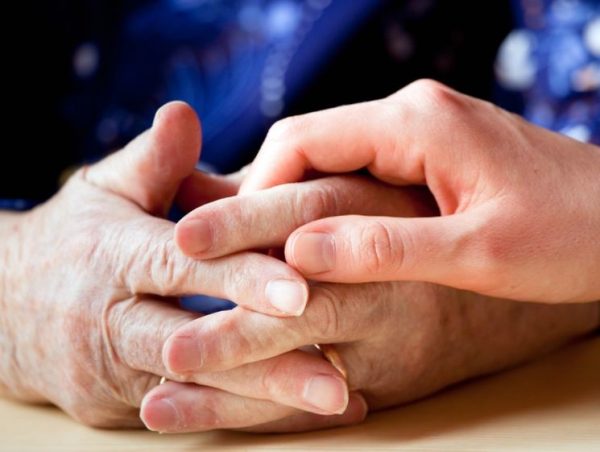
Who can get the status of a guardian?
The legislation puts forward certain requirements for citizens who can and want to take care of the elderly on a material basis with a compensation payment. They include the following items:
- Permanent residence in the Russian Federation.
- Being in working age.
- Lack of official work, including under a work contract, as well as the status of an entrepreneur (the latter is confirmed by the Pension Fund, where insurance premiums are not received), self-employment in the areas of legal, security services, etc. To receive compensation, the suspension of business activities is not enough - you can count on payment only with its complete cessation with the receipt of the appropriate document.
- Absence in the lists of the employment service.
- Consent of the person being cared for, as they will be giving the extra portion of the retirement income to the caregiver.
- Documentary evidence of the absence of social benefits or pensions paid by the state, as well as insurance against industrial accidents and professional ailments, monthly payments to civil servants and unemployment benefits.
- Lack of military service in the ranks of the Russian army.
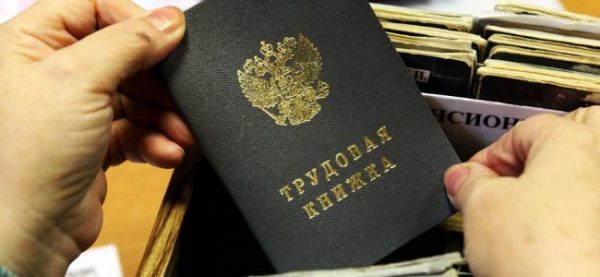
The point about the absence of social benefits and pensions is very important, since compensation has a social purpose, and if there is a source of income in the form of budget allocations, the state performs this function again, which should not be observed. The situation is similar with other income. If, after taking care of an elderly person, the assistant gets a job, he must immediately notify the Pension Fund, after which payments in his favor stop.
Permanent care for an elderly person means assistance in the implementation of one or more needs: these include maintaining hygiene, dressing, eating, fulfilling physiological needs, etc. In this regard, it seems logical to assume that in order to care for an elderly person, a citizen is forced not to work and devote all his free time to a guardian.

To apply for the allowance, it is not necessary for the pensioner and the person caring for him to live in the same apartment, room or house. It is enough to register in one locality (city, urban-type settlement, village). If the person being cared for ends up with a guardian in different localities, the assignment of benefits is regulated by a special Commission, which takes place at the place of residence of the pensioner. The decision on this issue is made within 10 days in the presence of all necessary documents. If specialists submit requests for additional information, the deadlines may be delayed up to 30 days.
The presence of family ties is also not a mandatory factor in order to obtain guardianship and receive compensation payments.
The age of those who provide assistance to the elderly cannot be younger than 16 years. This is due to the fact that between the two parties there is a social contract, which, from the point of view of legislation, performs the functions of labor relations. A person under the age of 16 cannot work and have earned income.

An exception to this rule applies to scholarships, but they cannot be equated with income.
In legislative practice, there are situations when employment contracts can be concluded with persons from 14 years of age. The conditions for their implementation are a positive reaction of parents or guardians, the absence of obstacles on the part of guardianship, which are explained by potential harm to the education and health of a minor.
An important note - the fulfillment of duties in this case is facilitated. An assistant can only be appointed to a capable person after collecting the necessary documents. In general, this is a positive thing, since active pensioners will need help in the person of unemployed minor grandchildren and their friends.
The following persons may care for the elderly:
- Housewife.
- Officially unemployed freelancer with a free schedule.
- A woman who is receiving benefits for caring for a child up to 1.5 years old without saving her job. This payment is administered by the Department of Social Welfare.
- Student of a university or college. This is possible, since training cannot be equated with employment, and the scholarship does not belong to the group of social benefits.
Among these categories of the population, older people should look for helpers if, for one reason or another, children and other relatives cannot decide on this (including due to the loneliness of an elderly citizen). If the elderly person has relatives, they are required to sign the consent and notarize it, indicating in the text all the details of caring for him.
Guardians cannot be found among employees of social protection bodies.
If more than one person is looked after
When a citizen feels that he can cope with the care of several elderly people, the allowance is issued for each. The benefit rate is multiplied by their number.
For example, if the assistant has three wards, and their age is 80 years or more, he will receive triple compensation.
When caring for several wards, the guardians interact with the branches of the Pension Fund, which are responsible for the provision of each ward - it is quite possible that these branches will be in different areas.

Periods of service
Caring for the elderly has a positive effect on the duration of the insurance period. In addition to formal employment, each full calendar year of care is also included in this period at a rate of 1.8 retirement points. If a citizen organized the care of two patients who are at home without the possibility of independent movement, the experience is accrued as if in fact he is caring for one person.
These periods are confirmed by individual records held by those bodies that oversee the pension provision of a particular citizen.
For guardians of persons who have crossed the 80-year mark, the length of service increases if there is a labor period of any duration before and after the specified period. In addition, such insurance experience only affects the very possibility of having a pension, but not its size.
Pension points are accrued on the basis of an officially concluded agreement between the guardian and his ward. Without it, an employee of the Pension Fund will not be able to increase the length of service.
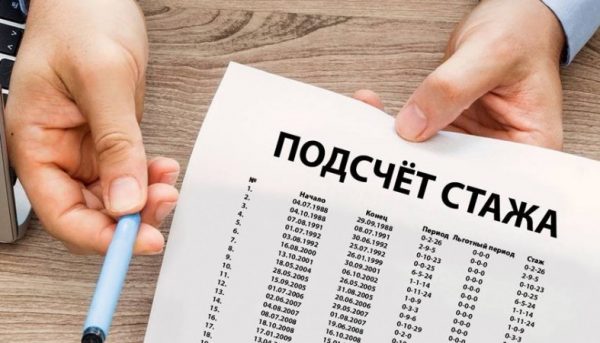
Responsibilities of an Elderly Caretaker
A citizen who provides care in favor of one or more elderly persons must have information about the duties:
- The assistant implements the payment of bills (including paying for utilities, personal income tax if necessary).
- The assistant purchases at the request of the ward a set of products, medicines, makes purchases from the group of personal hygiene products and other basic things.
- The assistant helps in everyday matters.
- The assistant is responsible for ensuring that the ward receives proper care.
- If necessary, the assistant goes to protect the rights and interests of the ward.
- If there is a need to carry out financial transactions in the interests of the ward, the assistant assumes such responsibility using a power of attorney.
- The assistant should monitor biomarkers - indicators of pressure, blood sugar, temperature, heart rate.
- If the ward lives in a private house, the guardian is obliged to remove snow in winter and grass in summer.
- The guardian manages the real estate of an elderly citizen in the interests of the latter for the purpose of making a profit. Examples of such operations are renting out an apartment, a car, a garage. These operations are carried out by proxy.
The person caring for the elderly person makes payments at his expense. At the same time, guardianship ensures that the elderly are not deceived and requires an annual report on the operations performed.

Entry into the right of succession
Under the law of the Russian Federation, guardianship of the elderly does not imply further inheritance of their property by an assistant. But if there is consent from the elderly citizen, a will is drawn up, according to which his property is transferred to the guardian.
In this case, you can not do without the help of a notary who will help draw up a will, since the assistant is not a direct heir.

It is possible that the assistant moves into the home of the ward at no cost, and vice versa. Although neither party receives ownership of the property, they must obtain permission to move from the authorized body.
Such cases often occur when the assistant moves after an elderly person to another locality.
How to get paid
The procedure by which a guardian becomes a recipient of compensation is simple. First, the ward draws up a written consent to be looked after. Further, the potential assistant applies to the pension authority at the place of residence of the pensioner, or transmits the application remotely on the "State Services". It is also possible to submit the application through a representative with a notarized power of attorney.
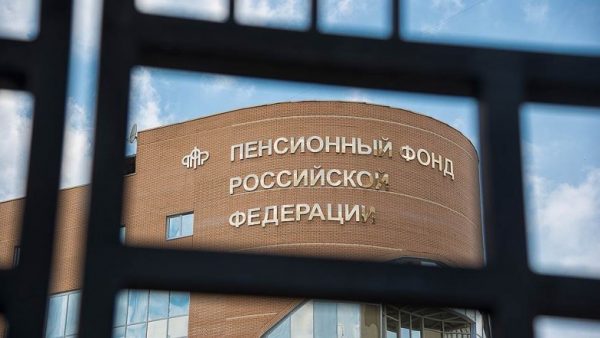
When contacting in person, this person must collect and provide a complete package of information. After that, the Fund specialist is obliged to record the appeal in writing. The decision must be made after ten days, excluding weekends and holidays. A reasoned refusal is sent to the applicant within five days - usually by registered mail. If the applicant for compensation has submitted an incomplete list or there are some errors and inaccuracies in the documents, he has 3 months left to correct the errors.
Legislation protects the elderly from unscrupulous guardians and does not allow people to reach them:
- With alcohol or drug addiction.
- With serious illnesses that impede the implementation of duties - tuberculosis, AIDS, and others.
- Previously convicted.
Suspicion is caused by potential assistants who cannot get a reference from a previous place of work or place of residence. If there is no notarized consent of relatives, such a guardian is also included in the group of dubious ones.

Employees of the Pension Fund are loyal to persons who arrange care for the elderly. You should not be afraid that the process of processing payments will be artificially delayed.
Video - How to apply for a pensioner care allowance
Standard set of documents for PF
FIU employees must receive:
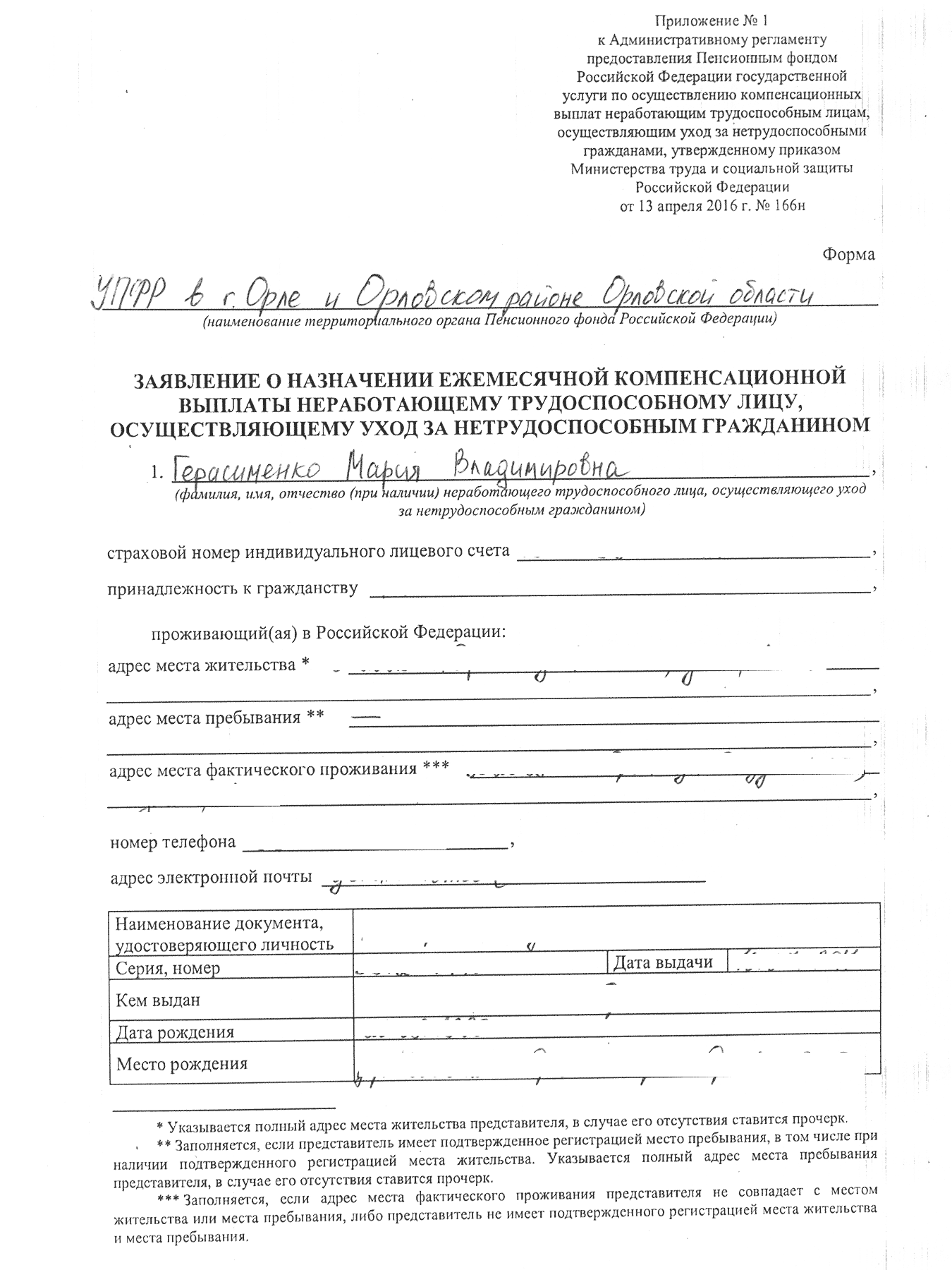
In the application that comes from a potential guardian, specialists should find:
- The name of the territorial body of the PFR, as well as the full name - this information is contained in the upper part of the document.
- Identification number of the insured in the Pension Fund.
- Having citizenship.
- Passport data (document series, its registration number, when and by whom it was issued, place and date of birth).
- Data on the places of registration and actual residence (indicating the country, locality, street).
- Contact phone and email.
- Status of absence of official work.
- Date of commencement of duties, full name of the ward, as well as the reasons that necessitated guardianship (in this case, the document indicates the onset of a certain age).
- Intention to become a recipient of compensation with reference to applicable law.
- Description of documents that supplement the text of the application.
- The date the application was made.
- Signature of the applicant with transcript.
If the application is submitted to specialists through an authorized representative, it must contain his passport data, address, as well as details of the power of attorney.
The pensioner also fills out an application that includes information:
- Passport data.
- SNILS identification number.
- Residence address.
- Contact number for communication.
- Employment status, including pension.
- Grounds for obtaining the assistance of a guardian - for this, it is enough to indicate the age category for which they are obliged to provide an assistant.
- Date of completion and signature with transcript.
If the FIU specialists require additional documents, it must be remembered that this step is not legal. All information relating to both parties can be found by the Fund's specialists on their own, or they can be requested from representatives of other state bodies.
The pension authorities have the right to conduct inspections, during which the regularity of care for an elderly person and the completeness of the performance of duties are revealed.
When moving to a new place of residence, you may be asked to submit a new application with a list of documents that will need to be collected again.
The payment of funds begins from the month when the employees of the pension authority make a positive decision in response to an application with a full package of documents, but not earlier than the date the right to receive them arises. If the decision was made in the next month, a recalculation is performed and compensation is accrued for past periods related to the accrual dates.

When payments stop coming
A person who is faced with certain changes that prevent the receipt of appropriate compensation from the state when caring for an elderly citizen is obliged to inform the representatives of the Pension Fund about these facts. As with filing an application, a citizen has two ways - to contact the FIU specialist personally, or to transfer information using the Internet. The pensioner himself can also terminate the relationship with the guardian due to dissatisfaction with the quality of the services provided, by issuing the appropriate document for transfer to the pension provision of citizens.
Factors that hinder the receipt of payments are also identified during regular inspections by the representatives of the FIU.
In general, the interaction between the guardian and the ward is interrupted when the following circumstances come into force:
Table 1. Reasons for termination of payments
| By the guardian | From the guardian's side |
|---|---|
| An elderly person dies / goes missing (recognition is carried out in accordance with the procedure established by law) | The guardian dies / goes missing (recognition is carried out in accordance with the procedure established by law) |
| Guardian gets formal employment | Referral of an elderly person to a state or municipal institution where he or she is under the care of social workers |
| The guardian is registered as unemployed and receives benefits | The ward lost the 1st group of disability as part of the revision of the commission |
| The guardian became an individual entrepreneur | An elderly person left the country, deregistered |
| Any type of pension is transferred to the guardian | An elderly person has changed his address within the country - in this case, the accrual of compensation may be suspended until the nature and procedure for guardianship in the new place is determined |
| Guardian called to serve in the army | Drawing up a written application from the ward, which contains information about the lack of regular care, while representatives of the guardianship authorities draw up an act confirming the fact of the appeal |

A notice of the occurrence of the above circumstances must be received by the FIU within five days. After the employees of the Pension Fund are informed about the reasons for breaking off relations with the guardian, the accrual of compensation will cease to be relevant from the beginning of the next month.
If the notification of the Pension Fund about the occurrence of the above events did not occur on time, the recipient may be charged with illegally accrued and received amounts of compensation.
When payments were not made due to an oversight of the employees of the Pension Fund, the state body is obliged to reimburse them to the guardian in 100%, regardless of the limitation period for the decision to transfer.
Elderly care outside of application
It is not uncommon for caregivers to be unaware of entitlement to compensation during the caregiving period and, as a result, do not indicate their intention to receive payments. If information reaches them about the need to collect the appropriate package of documents, guardians can receive payments for the last three years after they prove that the care was actually carried out:
In practice, there are cases when, in the event of the loss of grounds for compensating for the time and effort spent on caring for an elderly person, the guardian insists on transferring compensation for past periods. Persons who are knowingly informed that during the indicated periods there were factors preventing the receipt of payments, you should be aware that such statements may result in a charge of a fraudulent scheme and a real criminal term.
Guardian Benefit Information
When the guardian becomes the executor of the daily duties of an elderly citizen, he must have information about what preferences from the state are given to pensioners in various areas. Otherwise, he will not be able to effectively manage the budget of the ward. If a senior citizen does not receive any benefits, the guardian may do so on their behalf.
Separate benefits addressed to assistants are not provided by the state, however, in some cases, free travel is provided for accompanying persons.

Payment of part of the cost of living
Citizens who, at the time of the formation of benefits, are 80 years old or more, have the right not to pay half of utility bills. To apply for this benefit, it is enough to contact the multifunctional center at the place of residence or approach a specialist from the territorial department of social protection of the population.
In this case, the applicant must have the following documents:
- Confirming the ownership of real estate, or a lease agreement.
- Containing information about the income of an elderly citizen and his family.
- Receipts with paid amounts of utility services.
On the ground, regional authorities may provide this age category with additional privileges. In particular, to exempt pensioners living alone older than the specified age from paying for the overhaul required for an apartment building and a multi-storey residential building.
Partial reimbursement for treatment and related services
Persons who have crossed the line of 80 years of age are required to provide:
- Medicines at half price. The reduced price must take effect no later than 10 days after the prescription is issued.
- Travel, which is paid by the state when moving for treatment to another locality.
- Payment for a voucher for staying in a sanatorium-resort zone 1 time in two years.
- Partial payment for prostheses for various purposes (dental prosthetics are an exception in this case).
- Service in medical institutions without a queue.
- Visiting a health worker at home.
To apply for vouchers to a sanatorium, you should contact the Pension Fund at the place of residence, or the local branch of the FSS.
In order to become the owner of preferential conditions, in addition to the application, you need to provide documents from medical institutions, a pensioner's document, as well as the original passport.
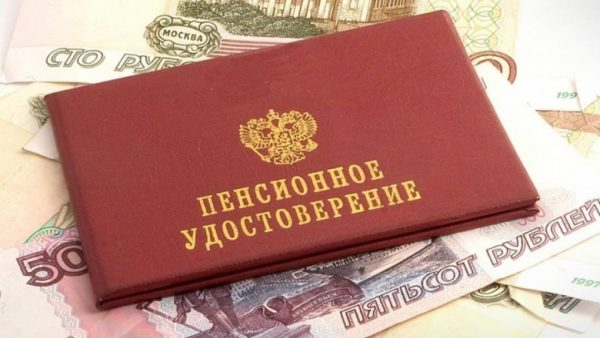
Travel expenses reimbursement
Travel on city routes of land transport for pensioners over 80 years old is supplemented by benefits at the regional level - they may differ in different regions of the Russian Federation. Local authorities provide concessionary travel by providing senior citizens with travel tickets, as well as through supplements to pensions.
The following modes of transport are also preferential:
- Railway (including suburban).
- Air transport companies provide discounts, including through government subsidy programs.
When buying a ticket, an elderly person demonstrates a pension certificate in order to purchase it on preferential terms.
Compensation of tax payments
Citizens aged 80 and older are exempted from certain mandatory payments to the budget and receive tax preferences:
- They do not pay income tax.
- By purchasing real estate, they are entitled to receive a tax deduction.
- They pay a reduced land tax - 10,000 rubles less than the amount provided for by law.
- There is no obligation to pay property tax for owning real estate. If a person goes to court with a property claim, the value of which does not exceed 1 million rubles, he does not need to pay a state fee.
- In some regions, they are exempt from motor vehicle tax if the vehicle's power does not exceed 100 hp. With.
Other preferences for persons over 80 years of age
If an elderly citizen, upon reaching the specified age category, continues to work, in accordance with the Labor Code, he has the right:
- Go on additional unpaid leave for 14 days.
- Do not go to a two-week working off upon dismissal.
It must be remembered that citizens aged 80 and older have the right to receive an apartment for use under a social tenancy agreement if the existing housing is recognized as unsuitable for living.
Elderly people can use social services provided by regional authorities:
- Seek legal help for free.
- Receive food through assistance programs.
- Receive in-kind assistance with clothing, essentials and hygiene products, which is also transferred in cash.
Social services are administered by the Pension Fund at the place of residence. Applications for the issuance of funds instead of material things and the provision of services are also filled in there.
As for the deductions that pensioners receive, after 80 years the basic fixed payment is doubled. At present, its size is 4,982 rubles, and in double size it is about 10 thousand rubles. In regions with difficult living conditions, this amount is additionally increased by the district multiplier.
Upon reaching the age of 80, the renewal of pension payments is made automatically. The accrual is made by the Pension Fund within 30 days, and it is not required to visit the branch to increase the pension.
For persons with the so-called "northern" experience, half of the amount of the fixed base is added to the pension of citizens who have worked for at least 15 years in the regions of the Arctic. An addition equal to 30% of the size of the FBI is established if the pensioner has worked for at least 20 years in places equivalent in climatic conditions to the northern regions.
An elderly citizen whose pension can grow due to both factors - the district multiplier and the northern length of service - can choose one of the accrual methods.
If an elderly person takes care of a disabled dependent, he is entitled to a third of the size of the fixed pension base per each (the number of such persons, respectively, should not exceed 3).
The specified norm of the legislation is relevant only for those pensioners who are not included in the 1st disability group. This is due to the fact that the fixed pension payment is charged for them in double the amount.
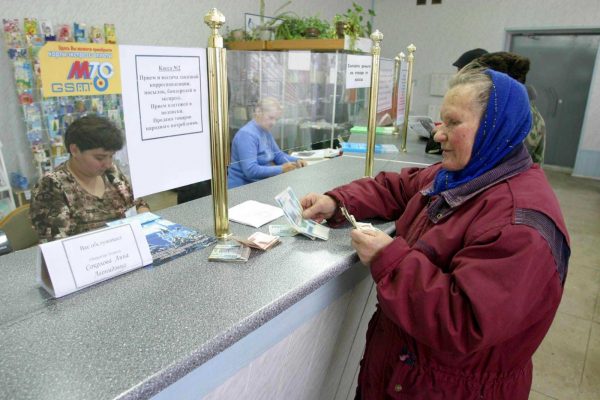
Patronage
Subject to the capacity of an elderly person, one can become his guardian within the framework of patronage.
Despite some differences in regional acts, there are common points that should be considered:
- The ward independently or through an authorized representative notifies the guardianship authorities of the need for patronage. To do this, he prepares a written statement. Additionally, the applicant demonstrates documents confirming health problems associated with the need for constant care.
- By analogy, a citizen who is ready to become an assistant to an elderly person applies to the guardianship authorities. Additionally, he will need a reference from the employer or supervisor, a certificate of the absence of drug and other types of addictions from a narcological dispensary, a health certificate obtained after passing a medical commission, a certificate confirming the absence of mental problems, a certificate of the absence of tuberculosis.
In regional authorities, employees may request additional information in accordance with applicable local legal acts.
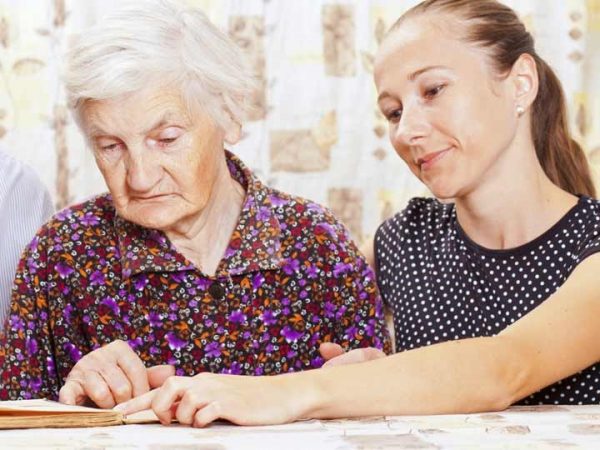
Patronage is different from full custody, where the assistant acts on behalf of the incapacitated ward without using a power of attorney. Funds from the state are transferred to the account of the guardian, which is open for such payments. He uses them to maintain the quality of life of the ward and regularly reports to the ward on how the distribution of money happened.
How documents for registration of patronage are considered
After receiving a petition from the applicant and a complete package of documents, the specialists of the guardianship authorities begin to study them. If there are not enough grounds for applying for patronage of an elderly person, the applicant will receive a refusal in writing with an explanation of the reason. Otherwise, the specialist considering the information will begin to prepare the appropriate order, which will fix the required form of guardianship of the elderly citizen. Copies of this document will be sent to the caregiver and the caregiver.
If an elderly citizen petitions independently and the grounds for appointing an assistant are compelling, the law sets a deadline for appointing a guardian equal to 30 days from the date of application.
Agreement signed by the parties
Based on the order of the guardianship authorities, the elderly person and the guardian conclude one of the following types of agreements: an agreement that specifies the format of trust management of property, an assignment agreement, as well as any civil law agreement, including an agency type agreement. The text prescribes all the nuances of the interactions between the responsible person and the elderly citizen, so that in the future there will be no serious discrepancies. Experts recommend specifying exactly how the assistant will cope with the household needs of the ward, specifying in the contract the regularity of receiving assistance and its amount, the address where the caregiver lives and other details.
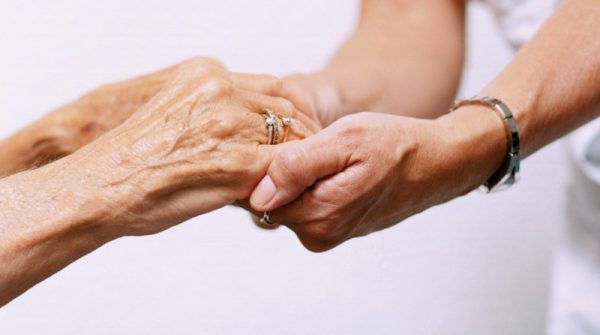
During the care process, the assistant can spend his own money - in this case, it is possible to reimburse the costs. The order of this procedure should also be reflected in the contract.
The quality of care of the patronage assistant will be fixed, among other things, by the guardianship authorities. If they discover dishonest performance of duties or abuse of the position of guardian, the agreement may be terminated at their request.
Conclusion
Given the modest amount of compensation from the state, care for the elderly in our country is more of a voluntary initiative than a way to get a source of income in case of its absence. The amount of payments is not able to cover the costs of maintaining the elderly, therefore in Russia at the moment there is no institution of professional guardians. An increase in payments would help bring the interaction of assistants and wards to a qualitatively new level.
Nevertheless, the existence of a minimum wage is an incentive for those who feel they have the strength to provide quality assistance to several pensioners at once. The period of care for the elderly is included in the insurance period, affecting its duration, which in itself is also an incentive measure. In addition, the amount of compensation can be increased by the ward himself. If the guardian tries to manage his or her retirement income more efficiently, the chances of receiving additional payments increase. To do this, you need to regularly be interested in the benefits that the state provides in the areas of payment for transport, communications, housing and communal services, tax breaks, medical care and spa treatment.
It must be remembered that the Pension Fund and guardianship authorities carefully monitor the implementation of the agreement between the assistant and the elderly citizen, checking the volume and regularity of the services provided. Therefore, you need to soberly assess your strengths before taking on these obligations.

At present, when caring for an elderly person, an assistant can count on a monthly amount of 1,200 rubles, which is transferred to him by the ward. The guardian does not have the right to independently withdraw funds from the pensioner's account. If there are several wards, compensation increases in proportion to their number. The district coefficient also increases the amount of payment in regions with special climatic conditions - for each subject of the Russian Federation it is established by local acts and is an individual indicator.
The procedure for registration of guardianship and compensation is simple and includes the transfer of applications from both parties along with a package of documents - it includes medical reports, information about the ward and guardian, confirmation that the assistant does not have the status of unemployed, officially working, or an individual entrepreneur. In order to obtain guardianship, the assistant must also not receive pensions and social benefits, be in military service, and there should be no obstacles for minors from relatives and representatives of guardianship authorities. In the latter case, care is allowed only for a capable elderly citizen. This is of mutual benefit to the older person and the teenager, who becomes more responsible and tolerant in the process of interacting with the older person.
In practice, relatives most often become guardians, but an elderly person has the right to involve an outsider who does not live with him in resolving issues. For this, his voluntary choice and the consent of relatives, certified by a notary, are sufficient.